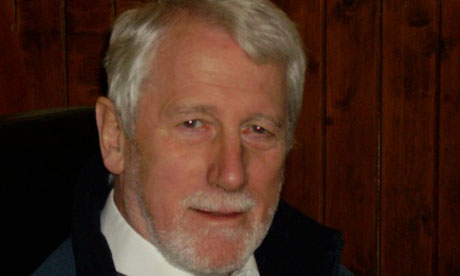
Professor Miller Mair, who has died of a heart attack aged 74, was an influential figure in British clinical psychology. He was one of a small group who – reacting against the behavioural orthodoxy of the 1950s – established a framework in which people were viewed as complex social beings. The main vehicle for this was Personal Construct Psychology (PCP), the creation of American psychologist George Kelly and imported into Britain principally by Don Bannister, Miller's closest colleague and friend.
Until then, clinical psychologists were not expected to "treat" patients, but rather to categorise and assess them for psychiatrists. Amid the cultural revolution of the 1960s, psychologists did win some independence from psychiatry, but only by offering behaviour therapy, supposedly validated by its basis in scientific method. Miller and his colleagues demonstrated that there was far more to therapeutic psychology than trying to modify behaviour through reward and punishment.
Born and raised in Aberdeenshire, the younger of two boys, Miller attended Newmachar primary school and Robert Gordon's college in Aberdeen before studying psychology at Aberdeen University in 1955. After graduating, he moved to London to train in clinical psychology at the Maudsley hospital, a leading centre of the behavioural approach. There he met his first wife, Katharine, with whom he had a son and two daughters; the marriage ended in divorce. It was there also that he first met Bannister. After qualifying in 1960, Miller moved to the Middlesex hospital medical school, where he eventually became senior lecturer. He received his PhD from London University in 1964.
In reacting to the aridity of the behavioural approach, Miller was less confrontational than Bannister, but no less effective in shaping opposition. Bannister characterised him as the "Scarlet Pimpernel of psychology", managing not to ruffle too much the feathers of the psychological establishment while quietly undermining its dogmatic hegemony. It was Miller's energy and initiative that addressed the lack of training in therapeutic psychology by founding the Psychology and Psychotherapy Association in 1973. Its purpose achieved, the organisation no longer exists, but it was important to many in offering a forum in which to talk, think and write about theory, practice and training in psychotherapy. Its newsletter, PPA Forum, of which I was the first editor, gradually morphed into what is now the Journal of Critical Psychology, Counselling and Psychotherapy.
In 1975, Miller moved to Dumfries and Galloway to become director of psychological services and research at the Crichton Royal hospital. He reinforced the Crichton's reputation as a centre of excellence in clinical psychology by establishing a two-year post-qualification course that provided a unique place for young psychologists to develop their thinking and practice in a context free of orthodox constraints, but still rigorous and demanding.
Miller remained closely identified with PCP. In 1968 he organised the first international symposium on its ideas in London, and the book he wrote with Bannister, The Evaluation of Personal Constructs, appeared. With Bannister and Fay Fransella, in 1977 he organised an international congress in Cambridge, and in 2010 he received a lifetime achievement award at the Conference of the Constructivist Psychology Network at Niagara Falls, New York state.
However, the intellectual independence of his extensive publications gives his ideas an appeal beyond that of any particular school. Principally this grew from a fascination with language and the avenues for therapeutic communication it offered. His 1989 book Between Psychology and Psychotherapy was subtitled "a poetics of experience", and this theme recurs throughout his written and spoken work. He saw therapist and client as reaching towards understanding through conversation and metaphor, through engaging with the "community of selves" of which they were personally constituted, and through striving to "tell stories" that would illuminate the conditions of their lives.
After retirement from the NHS in 1997 – the year when he married his second wife, Ingrid — he was for 10 years resident fellow at the Kinharvie Institute in Glasgow, and in 2001 he was appointed honorary visiting professor at City University, London. For over 40 years he was in demand as a speaker and teacher throughout Europe and the English-speaking world.
He is survived by Ingrid, his children, Andrew, Imogen and Frances, and five grandchildren.
• John Miller Mitchell Mair, psychologist, born 14 May 1937; died 9 June 2011

